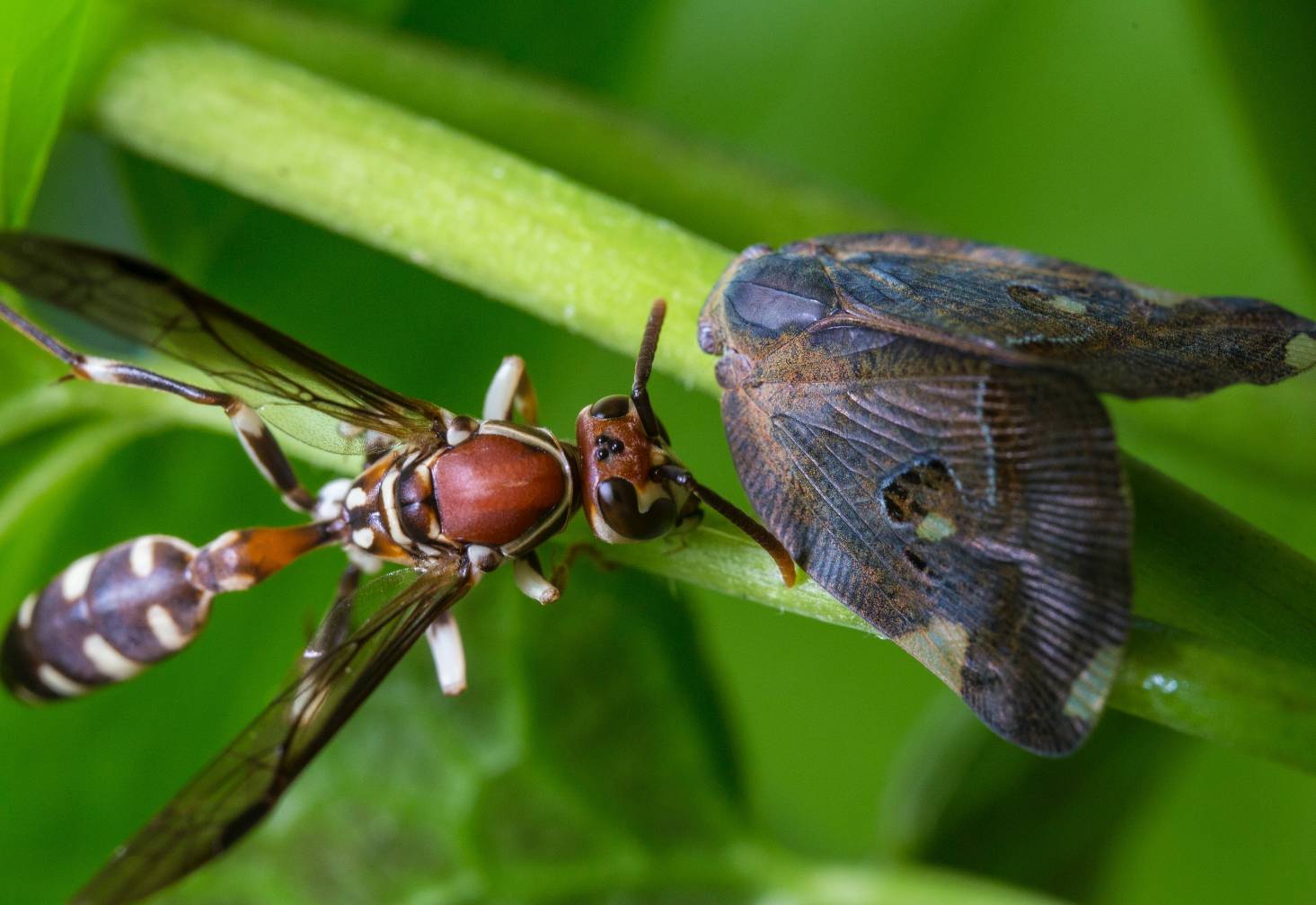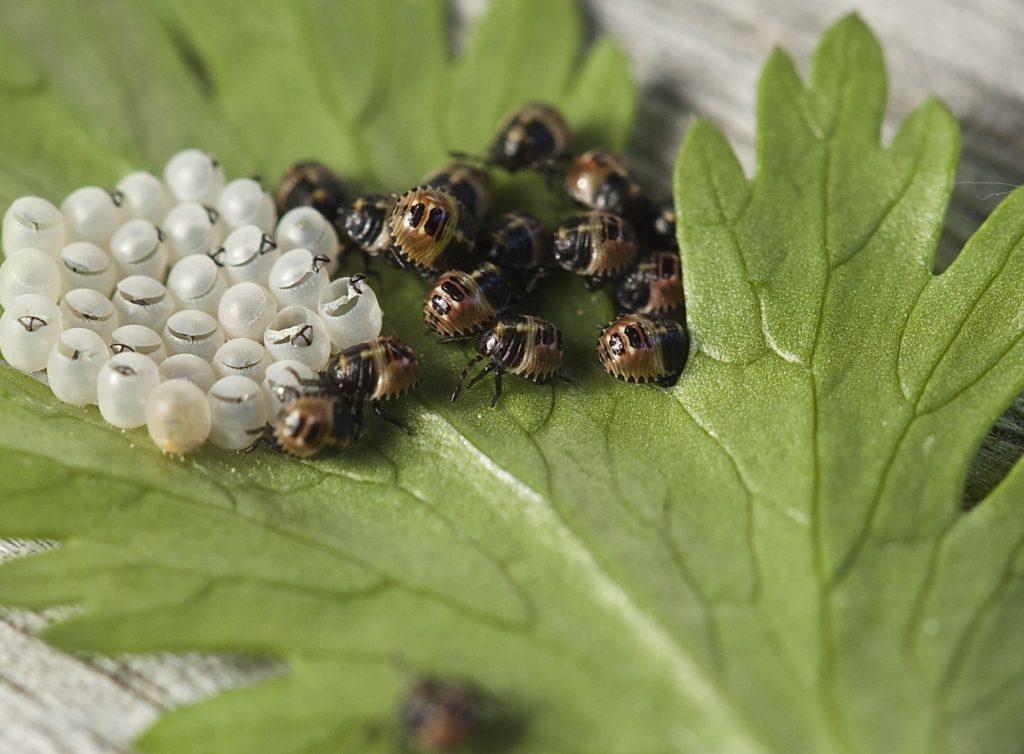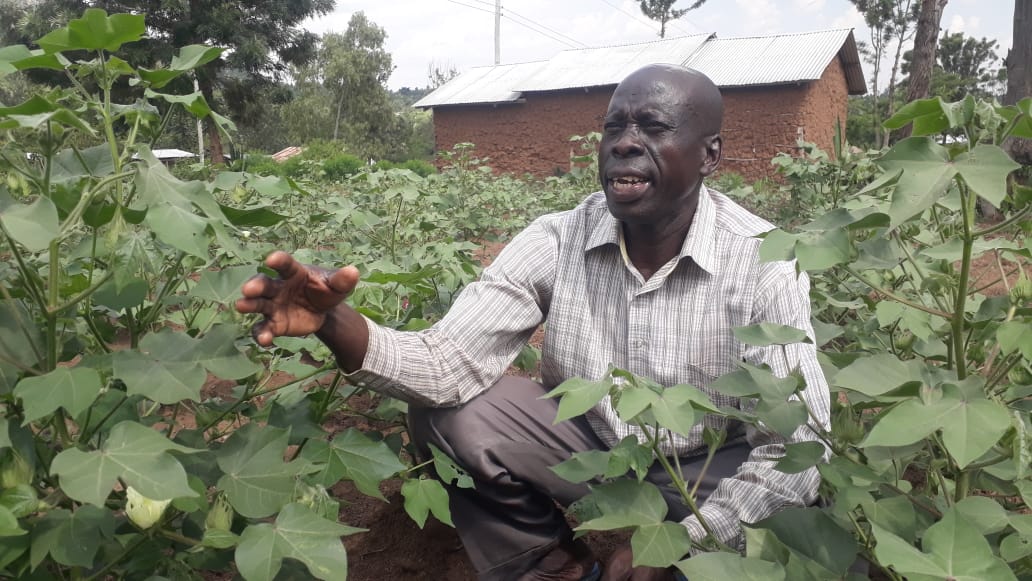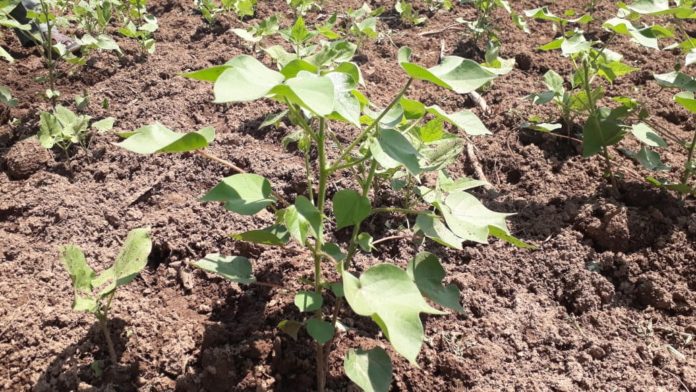By Clifford Akumu
Nairobi, Kenya: By the year 2035, Africa’s population will have hit the 700 million mark. In Kenya, population increase is already being felt in all sectors of the economy.
Just like her neighbors, Kenya will need to overhaul its food production system in order to feed additional mouths. That, says experts, will include shifts in agricultural policies, provision, and access of inputs to enhance crop productivity.
However, the race to high productivity is engulfed by the changing weather patterns, the emergence of voracious crop pests and diseases thus threatening the country’s food security.
In 2017, for example, when the Fall Armyworm first appeared in Kenya, it ravaged staple crop maize across the country, thanks to the voracious insect’s appetite. In June 2018 fall armyworm was present in one-quarter of the maize cropland in Kenya, affecting more than 3 million people.

Desert locust
It would be followed later by the devastating desert locust invasion in several counties that decimated lots of crops and vegetation. Notably, say experts, all these invasions could have caused a catastrophe without interventions of plant protection products.
Clamour for pesticides ban
But the debate to ban or not to ban some molecules that are already banned in Europe has thrown a spanner in the works for both farmers, sector players, and regulators.
Last year, agricultural lobby groups stepped up calls for a ban on certain pesticides which have been linked to cancer.
A petition was launched in the National Assembly seeking a total ban on agrochemicals that have been banned in the European Union. The petition noted that some pesticides are classified as carcinogenic (24 products), mutagenic (24 products), endocrine disrupter (35 products), and neurotoxin (140 products).
The lobby groups had spelled out 17 recommendations to parliament. Kenya parliament’s Departmental Committee on Health echoed concerns over the high level of pesticide residues in fruits and vegetables, in their official report. Other recommendations included the need by the Pest Control Products Board (PCPB) to undertake an analysis of all active ingredients registered for use in Kenya-with the view to withdrawing hazardous – or potentially hazardous – pesticides.

Looming stall in crop production
However, pesticide regulators are now warning that banning the said molecules will literally “stall crop production” forcing the country to become a net importer of food.
Moreover, Kenya is a country with diverse tropical conditions of temperatures between 20-30 degrees Celsius which allows pests to thrive.
“Using crop protection products is inevitable across the country. Pests and diseases account for 40-100 percent losses depending on the pests that are attached to the crop,” Eric Kimunguyi, the Agrochemical Association of Kenya (AAK) CEO told Talk Africa.
“Kenya will be a net importer of food. The export market too will die. There will be a high disease burden as a result of no food to feed on. We will also lack indoor residual sprays or aerosols that control mosquitos leading to public health menace such as increased malaria incidences,” added Kimunguyi.
Echoing the same sentiments, Okisegere Ojepat Chief Executive Officer (CEO) Fresh Produce Consortium of Kenya noted the withdrawal of the molecules, “Will make over 40 percent of the country’s current production to literally crash”
He added, the process will hinder the country from exporting noting that, “literally everything we export today, somehow we are using plant protection products, however minimal they are. Banning of 262 molecules means that Kenya’s export will crash,” said Ojepat.
“We will be a net importer of most of the foods that we eat because currently, we are already food insufficient. Did you know, for example, that 98 percent of the pineapples consumed in the country are imported? And that we still import some pesticide products from Tanzania?”
Meanwhile, fundamentals for increased food production across the continent are growing stronger by the day powered by population growth and urbanization.
“Food security is more important in Africa than elsewhere,” said Stella Simiyu Director Regulatory Affairs & Stakeholder Relations CropLife Africa Middle East.
The EU Green Deal-are a set of proposals to make the EU’s climate, energy, transport, and taxation policies fit for reducing net greenhouse gas emissions by at least 55 percent by 2030, compared to 1990 levels.
EU aims to become the world’s first climate-neutral continent by 2050 and make the deal a reality.
However, the deal needs to take into account its impact on EU’s trading partners especially those in Africa noted the experts. Ms. Simiyu said adopting the deal as it is, “will create regulatory uncertainties. “
She further posed, “How then as Africans can we leverage to achieve a win-win situation in the EU Green Deal?” Africa needs its own policies and framework to come up with its own green deal.
“African farmers need to adopt technologies that match with their challenges,” noted Ms. Simiyu.
Kinyua Mbijjewe, Agricultural Consultant at AgCuity consulting noted that calls for synergies need to take cognizance of the diseases and pest pressures that pose major challenges for African farmers and require the use of effective pesticides, some of which are proposed for banning in the EU.
“In Kenya, we have pesticide regulations that are risk-based and largely fit for the purpose that help unlock the potential of sustainable agricultural innovation. Regulations suited to the needs of Europe are not necessarily suited to the needs of Africa. Limiting farmers’ access to necessary technologies will risk livelihoods and compromise food security. Kenyan regulatory frameworks should be strengthened not undermined,” noted Mbijjewe.
Kenya’s pesticide use status
The pesticide industry in Kenya dates back to 1949, with companies trading in pesticides and moving several products to produce coffee and other crops.
Kenya has a long list of pesticides-about 1345 products-that are registered for use in crop production. From this list, 11 pesticides are classified as highly hazardous by the World Health Organization and 237 as moderately hazardous.
And soon, came the regional blocs coming together, European Union consolidating and people becoming more conscious of the environment. Locally, These are the drivers that are currently pushing for food safety standards.
“Today, crop protection products are now registered specifically for a particular crop and pest which was not previously the case. In other words, there is more clarity and use of consciousness in the use of pesticide products,” said Kimunguyi.
Mr. Kimunguyi added that Kenya has recorded an increase in export trade with the EU at the tune of 155 billion as a result of training farmers, changing their behaviors, and providing them with technologies to control pests that otherwise would not be allowed in the EU.
Governance of pests and diseases has also tremendously increased, he noted.
“The East Africa region is also talking of harmonization of regulations so that we can expand the market to reduce the cost of doing business and registering the products across the borders….”
Easy access to affordable pest control products is another milestone. “The distribution of pesticide products to has increased. Today, even the smallholder farmers with half an acre can access the pesticide products and apply them and protect these crops from pests and diseases”
Challenges
However, as an industry, we have had challenges such as continuing to support farmers, developing models that change the behaviors of farmers, increase the level of technology on how the innovations are applied.
“For example, right now 35 percent of products registered at PCPB are biological control products. They are also involving the use of integrated pest management controls. We are bringing in sustainability mechanisms so that the farmers don’t just use the products anyhow. Previously containers were thrown all over. We are now collecting these pesticide containers and disposing of them in the right way,” said Kimunguyi.
Ideally, before a pesticide is registered in Kenya, it goes through a rigorous evaluation by PCPB for toxicology, ecotoxicology, as well as environmental effect on humans and animals.
Misuse of pesticide products majorly occurs on horticultural food crops. Dangerous pesticide use exposes people, and the environment, to high risks.
Toxicity of pesticides is so real, said Dr. Joseph Wahome, chairman of Toxicology Society of Kenya adding that “The effects of utilization or direct contact with pesticides is real. A good fraction of our clients are sick and their sickness is related to the use of some of the products or through the consumption of food they eat.”
“All stakeholders need to create modules on the safe use of chemicals and pesticides for farmers e,g module on personal safety, effects on their health, engaging and use of the molecules,” said Dr. Wahome.
“We need the same models that are used to monitor pesticide residue levels in the international markets to work for us in the local markets. What kind of protective gear do farmers need and why do they require them? Create awareness on separating of place for equipment cleaning and where people access to water for domestic use.”

Dr. Timothy Njagi, a development economist and a fellow with Tegemeo Institute of Agricultural Policy and Development of Egerton University, noted that the country has the capacity to conduct studies on pesticide safety but lack of funding still remains a huge challenge.
“Our governments don’t invest in research. But we largely rely on research conducted in other countries to make decisions. We need to invest in local studies to contextualize our own case as a country and also strengthen food safety standards for locally marketed food,” said Dr. Njagi.
Good news for smallholder farmers
Stakeholders are already training spray service providers and agrochemical dealers to tackle the misuse of pesticides among farmers. For example, across the counties, several spray service providers have graduated and will now support the work of extension service providers.
“Pesticides are meant to be toxic. If not used well, they have side effects. But if well used it is a very important tool in farming,” said Dr. Paul Ngaruiya, acting general manager research, strategy, and planning Pest Control Products Board.














